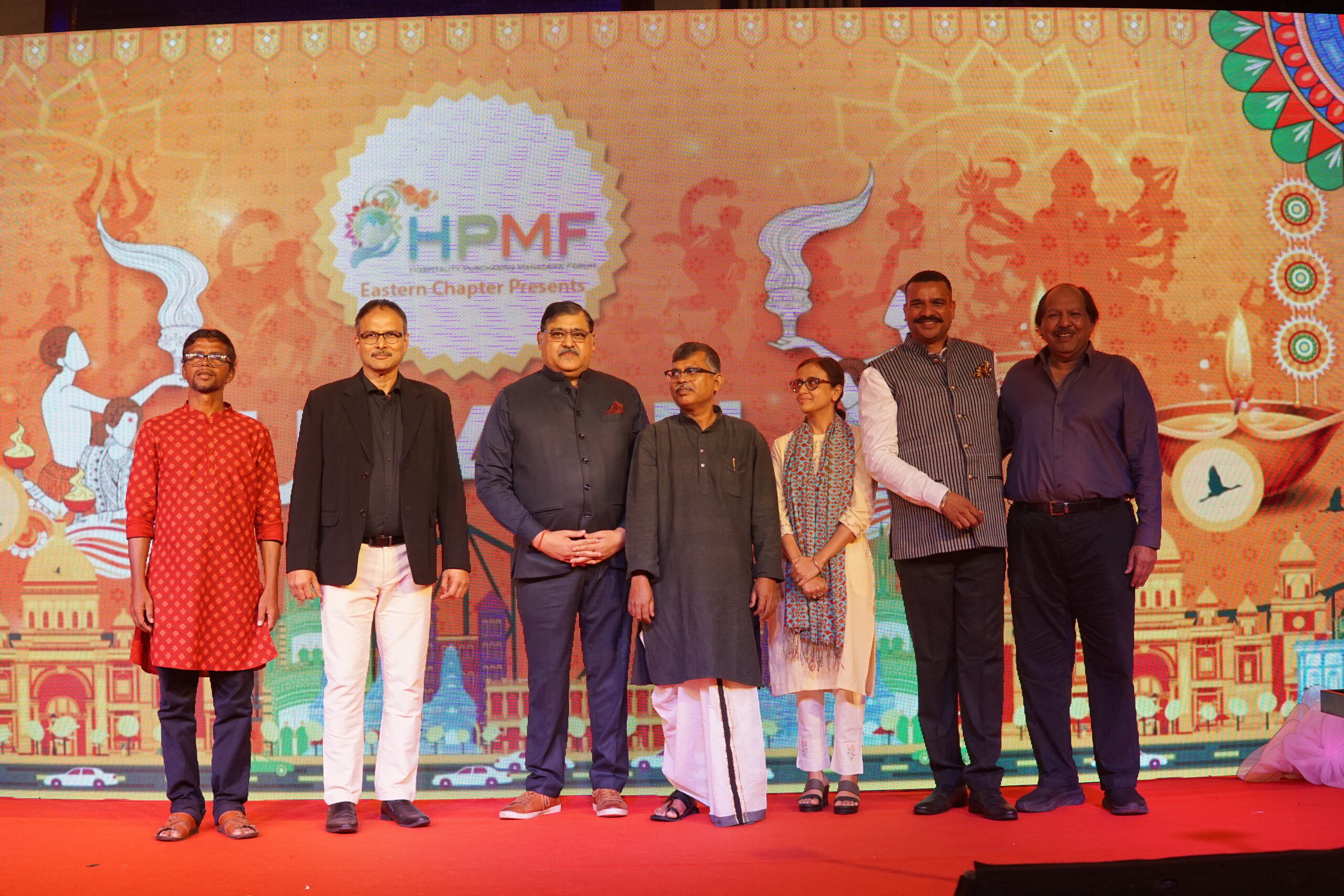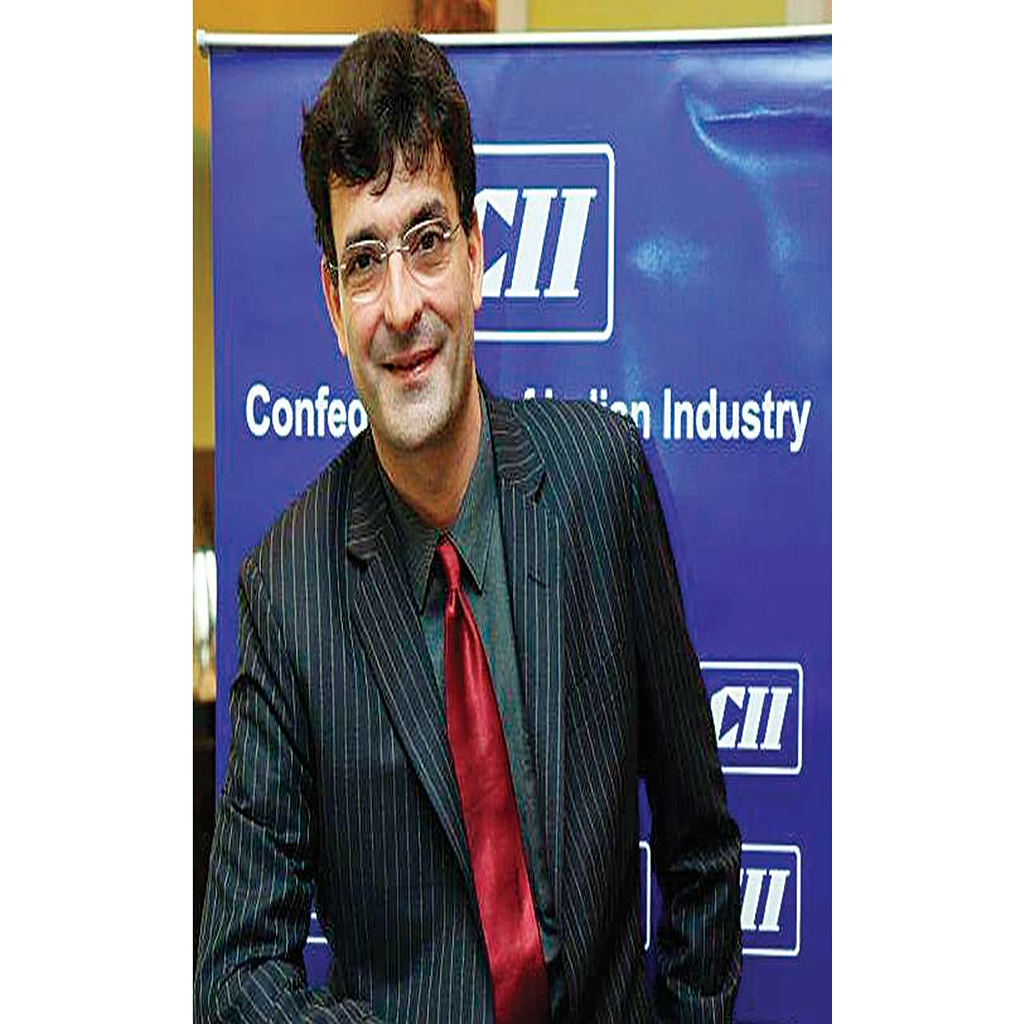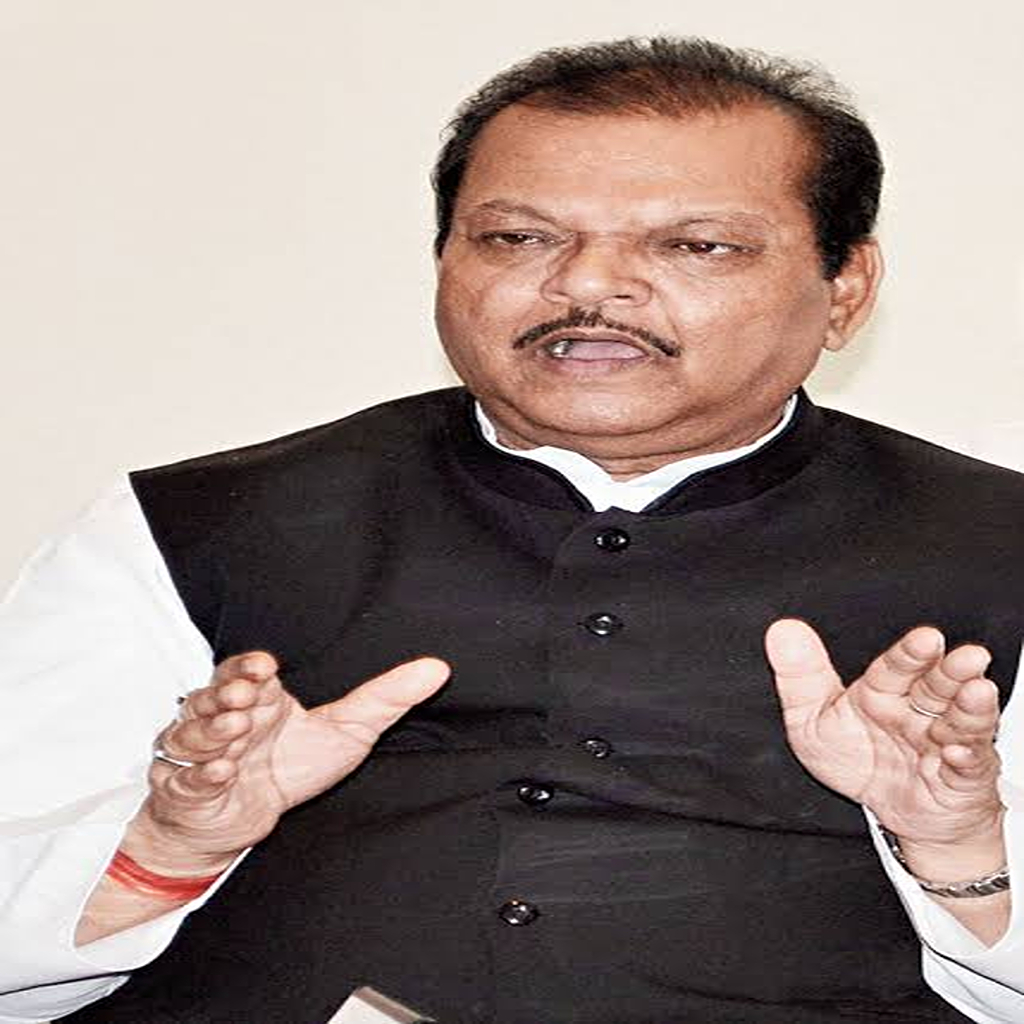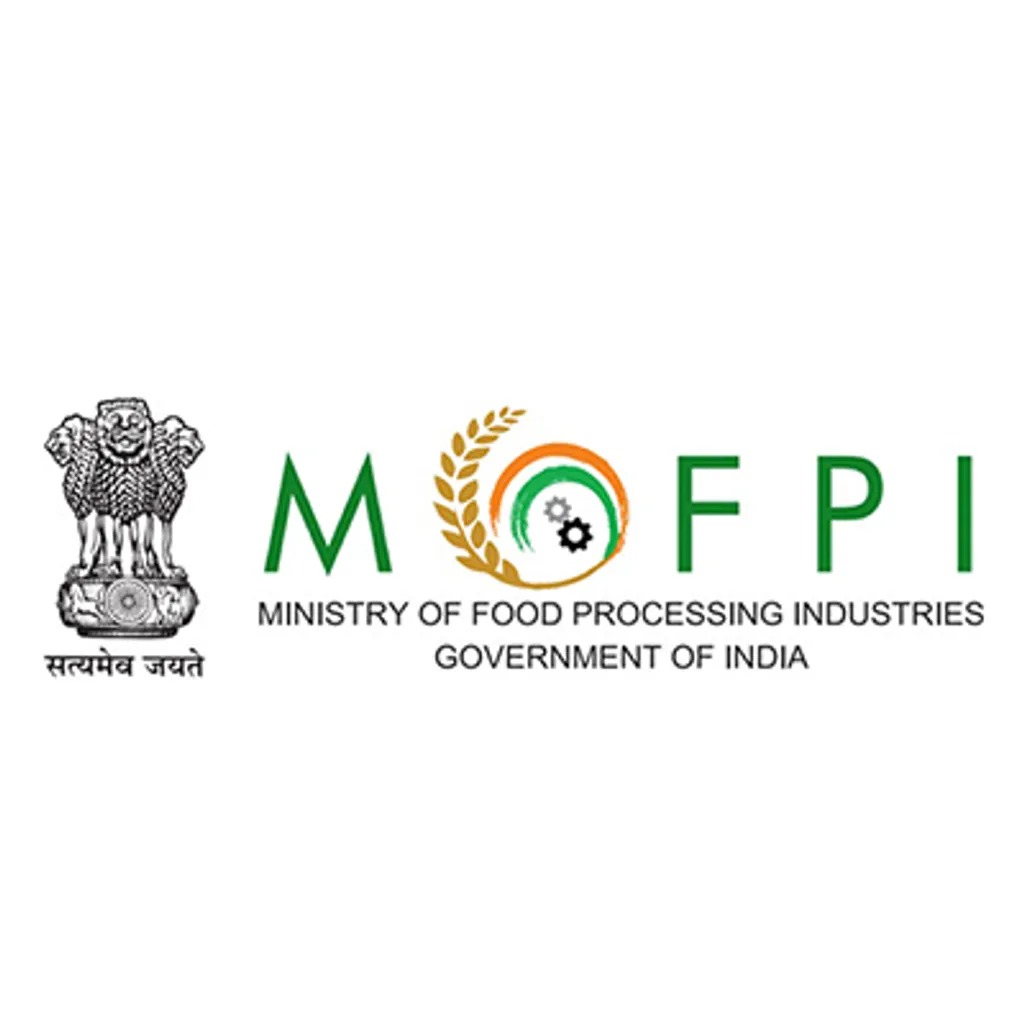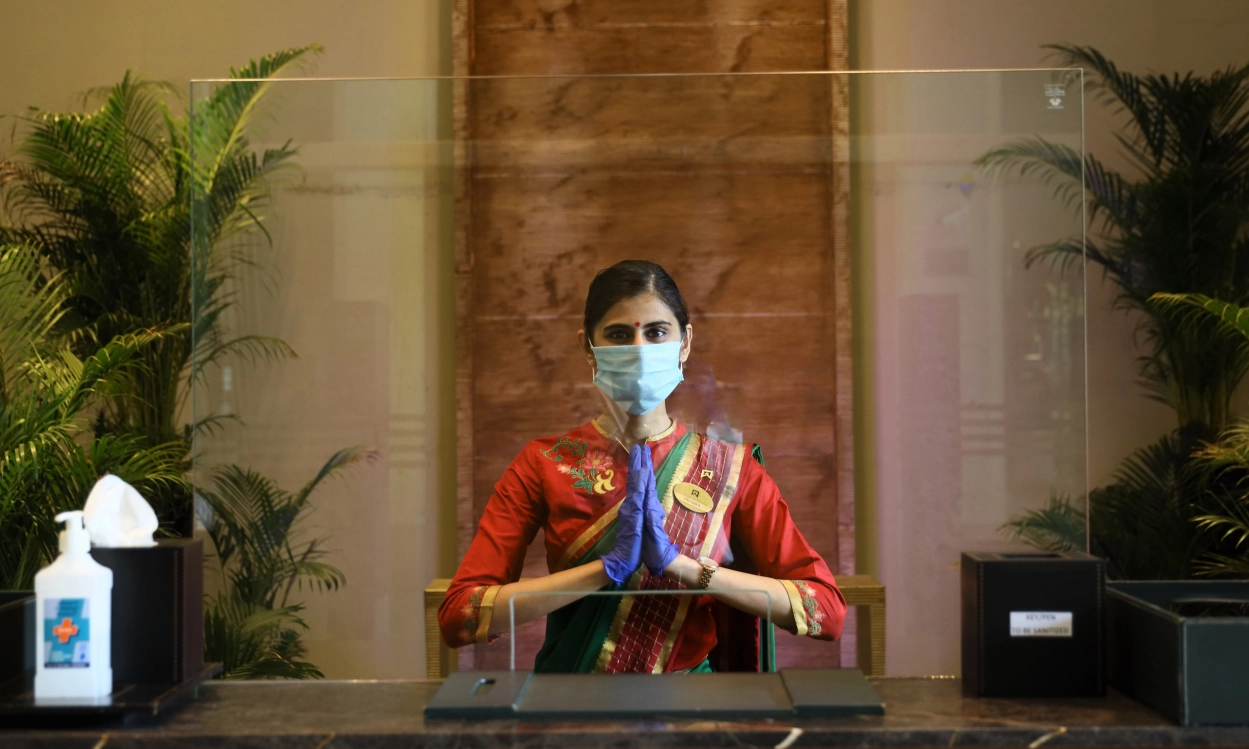
The hospitality industry has undergone a lot of turmoil over the last two years but gradually the industry has bounced back due to resumed travel and bookings. To regain a stable footing, the industry has been hoping for continuous support from the government.
However, the industry is highly miffed about the high Goods and Service (GST) tax put on hotel rooms as it has gained little government support during the tiring times.
As the industry looks forward to a good pipeline of booking it also anticipates a positive Budget for 2023-2024 to fast-track the growth momentum witnessed by the industry over the last couple of months after the pandemic lull. Asmita Mukherjee spoke with the apex industry association heads to gauge their sentiments about and expectations from Budget 2023-2024.
 Pradeep Shetty, President, Hotel & Restaurant Association of Western India (HRAWI) & Executive Committee Member, Federation of Hotel & Restaurant Associations of India (FHRAI)
Pradeep Shetty, President, Hotel & Restaurant Association of Western India (HRAWI) & Executive Committee Member, Federation of Hotel & Restaurant Associations of India (FHRAI)
Suggestions:
We are keeping a close eye on the developments but as of now, there is no cause for concern and most definitely, no reason to panic. However, the two years of the pandemic dealt a deadly blow to the hospitality industry and for this, our expectations from the upcoming Union Budget includes allowing set-off of business losses up to 12 years under Section 72 – In view of the monumental losses that occurred to the hospitality industry, it is requested that establishments be allowed to carry forward losses of business for up to 12 years instead of presently allowed 8 financial years.
We also demand to Increase the ECLGS loan term for the hospitality sector for the maximum period. The present 6-year period of loan repayment is too less for the hospitality sector to reap the desired benefits of an otherwise well-intended scheme. Most of the beneficiaries of the scheme had already mortgaged their properties as surety for the Principal Loan and if the ECLGS loan is not in sync with the earlier loan, it will lead to default of payments and a high volume of NPAs in the sector.
Also, continuation of the EPCG Scheme, service export benefits and granting export status to the hospitality industry. In view of the volatile economic environment created due to the pandemic, the Government is requested to continue the current benefits for the hospitality industry under the EPCG Scheme for another 10 years. We also request that the industry be granted export status to accelerate the growth of the sector.
Expectations from Budget Announcement
The recommendations which we have submitted to the Hon’ble FM for the upcoming Union Budget are granting Infrastructure Status to the hospitality industry and Classify hospitality under the RBI Infrastructure lending norm criteria for access to long-term funds to enhance quality accommodation supply and therefore, stimulate higher global and domestic travel demand. Currently, hotels built with an investment of INR 200 Cr or more have been accorded infrastructure status. This threshold has to be brought down to INR 10 Cr per hotel to give a fillip to the budget segment hotels. This will enable hotels to avail term loans at lower rates of interest and also have a longer repayment period.
We also demanded industry status and allied benefits to the hospitality industry. It is requested to classify the hospitality sector as an industry across the country and create a corpus which compensates from any notional loss. Even though industry status has been accorded to hotels by many State Governments, the incentives and privileges associated with an industry have not been conferred to the industry. The lower cost of operations spread over a higher payback period will reduce the cost of supply which will boost demand and through a higher inflow of both foreign and domestic tourists will boost further confidence in Capex spending in tourism and will thereby add to structural employment growth.
We also have requested to place tourism in the concurrent list of the Indian Constitution for effective legislation to make tourism into a national agenda. If tourism and hospitality are declared as an industry by the Centre and put on the concurrent list, it will also incentivize all States to align their policies. It will ensure better coordination between the Centre and the State for fund allocation and implementation of projects and programs aimed at the holistic development of the tourism sector in the country.
Requests also been made for waiver of secondary condition with regard to average Foreign Exchange Earnings under EPCG scheme retrospectively from FY 2007-08 onwards is an important point according to us. We also have demanded uniform GST @12 per cent across all hotel categories and room tariffs and relaxations in Section 115JB – Minimum Alternate Tax (MAT) thereby allowing a waiver on it for two years from April 2023 to March 2025.
Extension on investment-linked benefits under Section 35 AD for brownfield hospitality projects and modification in the Leave Travel Allowance (LTA) rules to include the amount spent on hotel stays to be considered as LTA expense are some of the important points presented to the FM.
We have also requested FM to treat payments made by foreigners in INR in hotels as foreign exchange earned for the purpose of the EPCG scheme. Foreigners coming to India and staying and spending in hotels should be deemed as foreign exchange earned by hotels for the purpose of EPCG Scheme.
Extending investment linked benefits from section 35 AD to on-going Capex of hotels and resorts shall immensely benefit high quality brownfield Capex and capacity expansion and thus, accelerate investment and employment in the sector. Presently, this benefit under Section 35 AD is applicable to new 2-star hotels and above category only.
We have also demanded that the stakeholders to be allowed to set off business losses for up to 12 years under Section 72.
 MP Bezbaruah, Secretary General, Hotel Association of India
MP Bezbaruah, Secretary General, Hotel Association of India
Suggestions
First a mechanism for wage support to the industry to prevent job loss. Second, a pragmatic and long-term liquidity support system to enable the industry, particularly the SMEs to discharge debt and interest payment liabilities in a period of lockdown and zero business. Third, the creation of a fund or an insurance scheme or a social security system for the vulnerable sections of the industry to withstand the shock of business and job loss.
However, for the Union Budget 2023-24, HAI submitted its detailed pre-budget recommendations to the government on four major parameters dealing with rationalization, reform or changes in
- Direct Taxes
- Customs and Central Excise
- Policy related Issues
- Indirect Taxes
Expectations from Budget Announcement
HAI believes that it is time to look at the requirements of long-term growth consistent with the Vision @47 and accordingly submitted its recommendations to the Government for some key policies for the betterment of the industry as a whole which includes according infrastructure status to hotels, provision of online single window clearance for hotel licenses, subsidized power tariffs for hotels as available to manufacturing industries and including hotel costs in the expenses in addition to travel expenses under the LTA Scheme, creation of an empowered National Tourism Board etc. Although GST related requests are not examined as part of the Annual Budget, HAI submitted its recommendations for GST rationalisation as well, which include the reduction of GST on hotels from the prevalent 18% to 12 % and reducing the rate of GST on restaurants located in hotels to 12% with full ITC. The industry is hopeful that this year’s budget will include some favourable policy announcements that will not only aid a speedy recovery of the sector but also promote the long-term growth and development of hotels.
Requests Made
The hospitality industry was the most affected sector during covid-19. The pandemic has dealt a severe blow to the Sector. The government’s support is crucial to restore normalcy at a faster pace for the hospitality industry and to unleash the full potential of the sector to create jobs across skill categories as well as for women and the differently abled.
Under Direct Taxes the main proposals included allowing hotels a higher rate of depreciation, allowing business losses to be carried forward for 12 years instead of 8 years, allowing carry forward of MAT Credit and allowing CSR expenditure in computing business income
Under Customs & Central Excise, removing petroleum products & alcohol from excise & placing them under GST Act instead has been the single most important recommendation.
Another proposal relates to restoration of the benefits to hotels under the Service Exports from India Scheme (SEIS) for at least 5 years beyond 2019-20 and maintaining hotel reward points under the Scheme at 5%
Wish list for tax rebates
Prime Minister, Narendra Modi has identified “Tourism” as one of the 5 key pillars of Indian economic growth and development. The hospitality sector is an important aspect of tourism both nationally and internationally.
There is no doubt that the government’s vision of creating 53 million jobs will be driven by the hospitality sector. As per a survey conducted by the Ministry of Tourism, the employment propensity in the hospitality industry is far more than that of sectors like agriculture, manufacturing, railways, and transport.
The gist of the proposals has been mentioned above. The proposals are in the form of incentives for the sector to grow in tune with the future vision of the country’s growth by creating income, employment and inclusive growth better than any other sector. HAI believes that the impact of the small incentives suggested will be to contribute manifold to economic growth and lead to a higher contribution to GDP. HAI sincerely expects that through the budget decisions, the government will provide tourism and hospitality with its due place in the future economic growth of the country.
 ‘Industry status will help in setting up a corpus fund to incentivize all States to align policies and set off any losses that may occur’
‘Industry status will help in setting up a corpus fund to incentivize all States to align policies and set off any losses that may occur’
Jaison Chacko, Secretary General, Federation of Hotel & Restaurant Associations of India (FHRAI)
The industry needs Infrastructure Status to be accorded by the Government of India to enable the hospitality sector to avail long-term funds under the RBI Infrastructure lending norm criteria. This will enhance quality accommodation supply and therefore, stimulate higher global and domestic travel demand. Although industry status has been accorded to tourism and hospitality by many State Governments, the incentives and privileges associated with an industry have not been conferred to the sector. Industry status will help in setting up a corpus fund to incentivize all States to align policies and set off any losses that may occur. Tourism and hospitality should be placed on the concurrent list of the Constitution to make tourism into a national agenda. It will ensure better coordination between the Centre and the State for fund allocation and implementation of projects and programs aimed for the holistic development of the tourism sector in the country.
With the industry associations going vocal about their FY 23-24 budget expectations, the hoteliers and restaurateurs have also put forth their views and expectations from the budget.
 ‘Granting Export Status to the hospitality Industry with tax incentives and benefits would enable the sector to be more competitive’
‘Granting Export Status to the hospitality Industry with tax incentives and benefits would enable the sector to be more competitive’
SP Jain, Chairman and Managing Director, Pride Hotels Limited
Extend Timeline for Export Obligation under EPCG Scheme: The EPCG scheme allows the import of capital goods including spares at zero duty subject to an export obligation of six times of duty saved on capital goods imported under the scheme, to be fulfilled in six years. Foreign Exchange earnings of the hotel industry have been impacted due to the unprecedented pandemic and restrictions on travel by many countries. This is leading to non-fulfillment of export obligations for pre-covid capital goods imports and consequent penalties on the hospitality industry. In view of the volatile economic environment created due to the Covid Pandemic, the timeline for meeting export obligations should be extended by at least 6 (Six) years for all the EPCG licenses which have an EO period falling between February 2020 onwards.
Continuation of EPCG Scheme, service export benefits and grant export status to the hospitality industry: The EPCG Scheme allows the import of capital goods for pre-production, production, and post-production at zero customs duty and subject to fulfillment of specific export obligations equivalent to 6 times of duties and taxes saved on capital goods to be fulfilled in 6 years from the date of issue of authorization. This scheme has helped the hospitality sector in India immensely to emerge as a strong player in the global tourism market, by procuring equipment as per international standards and quality. However, the capability of the domestic market to cater to the specific requirements of the hospitality sector is in its nascent stage in comparison to the requirements of the hospitality sector, where the clientele is largely from the global market which is highly competitive. Therefore, it is imperative to continue the EPCG Scheme to enable the hospitality sector to remain competitive in a global market scenario, for some more years.
Granting Export Status to the hospitality Industry with tax incentives and benefits would enable the sector to be more competitive and help the sector to jumpstart its growth to the next orbit.
Waiver of secondary condition with regard to average Foreign Exchange: Earnings under the EPCG scheme retrospectively from FY 2007-08 onwards From 2004-2007, the Hospitality industry enjoyed its golden years in terms of revenue performance while earning substantial foreign exchange but ever since then its revival to that past glory looks very remote. It was during this time that the service industry was exempted from maintaining Annual Average Performance conditions vide Para 5.7.6 of Chapter 5 of Exim Policy 2002-07. However, in the year 2007-08, DGFT in the new Exim Policy introduced an additional condition which not only meant that over and above the primary condition, the industry will have to earn 6-8 times the FEE within the respective block period and also saddled with a secondary condition of maintaining a 3 years average past performance continuously over & above the specific EO and the average has to be maintained for the entire block of 8/6 years till the redemption of license.
In this regard, our two requests are given below: –
a) Grant Relaxation in average export obligation by adjusting the preceding 3 years’ annual average performance for all years commencing from the financial year 2008/09.
b) Allow offsetting any shortfall in the average EO in any year by using the excess export done above export obligation for the fulfillment of an EPCG license.
Uniform GST @ 12 % on all Hotels: G.S.T. rates for hospitality in India are one of the highest in the world. This makes both domestic and inbound tourism in India very expensive. India is facing tough competition from neighboring destinations especially due to the higher rate of GST in India and other factors which make the total tourism package expensive to India.
The system of GST shifting to different slabs in the same hotel on different dates – under/over 7500 room rate – creates compliance issues. It also spills over to F & B. Therefore, we suggest introducing one flat GST slab @ 12 % at all times to all hotels in the country.
Treat the payments made by foreigners in rupees in hotels as foreign exchange earned for the purpose of EPCG scheme: Foreigners coming to India and staying and spending in hotels should be deemed as foreign exchange earned by hotels for the purpose of the EPCG Scheme. It should be treated at par with merchandise exports of hotels & resorts to promote exports of hospitality services. To enable investments into developing more global markets, it is requested to declare foreign exchange & deemed foreign exchange earnings from hotels & tourism as export earnings.
Additionally, it is roughly estimated that each foreign tourist moves across Indian states, stay at hotels & resorts, and go through other experiences, and spends their foreign currency or their converted foreign exchange. All such services of hotels & resorts which accept payment from such foreign tourists should be deemed as exports too.
 ‘The hospitality business anticipates receiving a consistent industry status from the government’
‘The hospitality business anticipates receiving a consistent industry status from the government’
Mehul Sharma, Founder & CEO, Signum Hotels & Resorts
“The good days have returned, and the hospitality sector has recovered like never before. We anticipate wonderful few years ahead. Therefore, the hospitality sector must inevitably benefit when the economy grows.
The hospitality business anticipates receiving a consistent industry status from the government across the nation. Only a few states today have declared this status for us along with some excellent initiatives to support the hotel sector. However, not all states operate in this manner. Similar regulations should be implemented by the national government, which will significantly aid the industry’s expansion. We must keep in mind that this industry supports a large number of jobs, and its success has a positive multiplier effect on the economy.
The hotel industry has recovered from the effects of the pandemic, but it is concerned about the high rates of the goods and services tax (GST) on hotel rooms and the government’s lack of help in the most recent budget (2022-2023).
Also, to give us with long-term loans, we ask the government and the ministry of finance. There is a significant gestation phase in the hotel industry, which means it takes three to four years to build a hotel, another two to three years to stabilize, and then the repayment period begins, which is very stressful. Hotel loans therefore have a 15 to 25-year term internationally. The hospitality sector in India should adopt a similar structure as well, as doing so will likely result in fewer NPAs and other problems than in the past.
Also, government should work upon making LTC mandatory and introduce policies and benefits for single female travelers. Government should also work towards incentivizing people to travel. Government should also look into making visa processes easier to our country.”
 ‘The existing single window clearance mechanism should be made more robust and efficient’
‘The existing single window clearance mechanism should be made more robust and efficient’
Vineet Verma, Director, Brigade Hospitality
“The Hospitality and Tourism sector, which is gradually returning to pre-pandemic levels and beyond, could well do with a push from the Government in the form of policy and incentives for the faster growth of the sector. While some measures have been rolled out, a lot more is required for consistent growth. For example, while industry status has been announced for the sector across select states including Karnataka, it is yet to be formally given effect. It would greatly help the sector if nationwide industry status is granted to the sector. Additionally, rationalisation of GST with some relief, at least for a couple of years, would attract larger audiences and provide the much-needed boost for travel and tourism in the country. The existing single window clearance mechanism should be made more robust and efficient. The Government should consider larger allocation of funds to improve last mile connectivity, public conveniences, and for training of tourist guides, cab drivers and facilities staff. In order to boost tourism, the Government could consider an India Shopping Festival, spread across major cities of the country, akin to the Dubai Shopping Festival.”
 ‘Industry status will enable hotel projects have easy access to cheaper debt’
‘Industry status will enable hotel projects have easy access to cheaper debt’
Kush Kapoor, CEO, Roseate Hotels & Resorts
“A full-blown infrastructure status for the hotel sector and further rationalisation of the Goods and Services Tax (GST) and a Central single window clearance for hotel projects are some of the major expectations from the Budget 2023.
The GST Council in 2019 green-lighted reduction in the rates on the hotel tariffs. The rooms with the tariff of INR 7,500 and above attract a GST of 18 per cent instead of 28 per cent. The rooms with tariff between INR 1,001 and INR 7, 500 are taxed at 12 per cent.
An 18 per cent GST is still high in this competitive scenario, it would have been better if it was revised to 12 per cent for the rooms with the tariff of INR 7,500 and above.
The industry has been clamouring for infrastructure status for decades. The status will enable hotel projects have easy access to cheaper debt that is at par with projects in other industries. A reduced capital cost will have a bearing on both timely completion of projects and their overall financial health.
Lastly, in a bid to fast-track investments, it is recommended to reduce the total number of licenses required to establish a centralised approval system for most common approvals, licenses & permits on an E- approvals basis. These should be granted within a pre-defined time frame or deemed to be approved.”
 Sharad K Upadhyay, General Manager, Crowne Plaza Greater Noida
Sharad K Upadhyay, General Manager, Crowne Plaza Greater NoidaThe hospitality industry is in dire need of government support to get back on track. The hospitality industry has requested the government to make maximum GST on hotel rooms at 12 percent, in the union budget for FY24. Industry body PHDCCI has also suggested a two-year tax holiday for businesses like hotels which have been massively hit by the pandemic and need immense support to grow and prosper. I do hope this will be heard and necessary policies and plans will be rolled out soon.
‘One India One Tourism approach inclusive of one tax structure is needed to revive this struggling sector’
Arvind Srivastava, Co founder, Kaudia Estate
As travel and bookings have resumed over the last two years, the hospitality industry has gradually bounced back. In order to regain stability, the industry has been hoping for continuous government support.
The hotel industry, however, is highly miffed by the high Goods and Services Tax (GST) levied on hotel rooms as it has received little government support during these difficult times.
It is expected that a positive Budget for 2023-2024 will further boost growth momentum seen by the industry over the last couple of months following the pandemic lull.
I very strongly believe there are several aspects which can be expected in the upcoming budget session to support the entire sector holistically ‘Travel Tourism & Hospitality’, which will help India to become the largest hub for tourism worldwide, by ensuring the sector survives, thrives and is economically supported. As a result, the central and state governments must work closely to make this sector more structured by including it in the concurrent list to get Industry Status.
A One India One Tourism approach inclusive of one tax structure is needed to revive this struggling sector. Important aspects include E visa fees waiver for all tourist visas for 2023-2024 to support inbound revival Export status for tourism export earnings to support inbound revival. Increasing expenditures for the tourism ministry to enable an intensive global outreach to support the revival of inbound tourism.
Continuation of the ECPG scheme will support the hospitality sector in a great way’
Kulbhushan Talwar, Cluster General Manager, Mosaic Hotels

We expect Finance Minister Nirmala Sitharaman to continue the ECPG scheme as the scheme has supported the hospitality sector in a great way to emerge as a strong player in the international market, by procuring high quality tools and apparatus as per global standards. We believe that the continuation of the EPCG scheme will equip the hospitality sector to remain competitive in a global market going forward and help the sector to grow and perform as per its real potential especially after COVID.
Also, there is a long pending recommendation from the industry to get infrastructure status and we expect FM to come forward in this direction to further boost the sector. Another expectation is to bring the hospitality under a flat rate of GST to attract both domestic and international travelers across the hotels.

‘F&B sector must be considered a priority in the budget 2023-24’
Sanjay Vazirani, CEO, Foodlink F&B Holdings
The F&B sector is a big contributor to the economic growth of our country and must be considered a priority in the budget 2023-24. The pandemic has dealt a severe blow to the Sector and the government’s support is crucial to restoring normalcy at a faster pace to unleash the full potential of the sector. The two biggest challenges for the sector in the last year have been recovering from the aftermath of COVID and battling rising inflation and food prices. The budget must prioritize growth-oriented measures to stimulate demand and consumption by outlining supportive policies, simplified regulations, skill development initiatives, and simple goods and services tax (GST) norms to aid in the sustenance and development of the industry. Some measures that can help are as follows-
- Provision of 150% depreciation on new investment in capital goods and permitting depreciation charges over an accelerated time frame.
- Reintroduction of “EPCG for Retail Sector”, to create modern infrastructure in the retail sector. Concessional duty benefits under the EPCG scheme to be extended for import or capital goods required by retailers.Relief in tariffs and import duties on imported goods and raw materials
- Tax concessions and reduced tax rates
- Simplification of regulatory processes
- Industry status for Catering.
- Allowing set-off of business losses up to 12 years under Section 72 – In view of the monumental losses that occurred to the hospitality industry, it is requested that establishments be allowed to carry forward losses of business for up to 12 years instead of presently allowed 8 financial years.
- Special relief package to be introduced for the F&B industry to disburse in case of any calamity in future.

Reintroduction of Input Tax Credit will give support to the F&B businesses’
Rajat Agrawal, CEO, Barista Coffee Company
Today non availability of input credit is the biggest loss for the F&B industry and has a big bearing on the P&Ls as well as the cash health for the business. Compared to other industries, F&B business stands at a distinct disadvantage. Reintroduction will not only support the F&B business, but will also give a much needed impetus post the pandemic years to cover up on the financial exposures which businesses have gone through.
Special Incentive schemes and easy credit eco-system for funding growth and on usage of indigenous goods which supports Make in India initiative.
‘We need a budget that supports interest-free loans, allows greater subsidies and reduces tax structure’
For the food and beverage industry to be able to bounce back from this epidemic and prevent further losses, we need a budget that supports interest-free loans, allows greater subsidies and reduces tax structure. Additionally, since most of the Food & Beverage businesses fall under the Micro and Small Medium Enterprise (SME) categories they should be offered extended moratoriums on interest payable.
If we look beyond the tax breaks and the interest-free loans, which are both good steps, there can be a lot that this budget could do for us in terms of a relief. The industry needs support from government agencies to help them regain their balance sheet health and rethink disaster recovery plans to reduce vulnerabilities and inequities.
‘We are expecting that government offers some relaxations in eye of the rising costs and reduced margins’
Shikhar Veer Singh, Co-Founder, Samosa Singh
With the new impending budget announcement—we are expecting that the government offers some relaxations in eye of the rising costs and reduced margins. The shift in the consumers’ preferences and purchasing patterns, the rising costs and inflation, online deliveries and the change wave induced by the pandemic are further catalyzing the demand for some relaxations in GST percentage and norms by the government to support in the growth and acceleration of this industry and the eventual economic boom—growth of the industry with promising potential and brighter future.

‘Looking forward to changes in Input Tax Credit’
Vinay Maheshwari, Founder & CEO, The Health Factory
The overall F&B Sector is essential to our nation’s growth and development, so it’s critical that the government keeps this sector at the top of the upcoming Union budget for 2023-24. We being pioneers in the industry, we have some expectations from this budget.
Increased funding under the MSME incubator scheme to support the food & beverages processing sector, as well as measures to connect the MSME sector using the PM Gati Shakti project to leverage the supply chain infrastructure. This will help in increasing the reach to more customers and continue to grow their business.
Looking forward to changes in Input Tax Credit (ITC) and Special provisions for companies that are committed towards making healthier products under the Make in India initiative. It will give a tremendous boost to companies hit during the pandemic days who are slowly recovering from it.
Set up a community for young businesses that encourage the consumption of healthier products that are good for one’s overall health, this will boost and promote a healthier lifestyle in the country.
Overall, I am optimistic about the potential for the food and beverage industry in India and look forward to seeing the government’s plans for supporting this sector in the upcoming fiscal budget.
‘The overall taxations , electricity rates , simplified approvals etc should be structured in the budget’
Abhimanyu Jakhar, Co founder, Diablo Mumbai
Although ICRA projections of revenue in hotel and restaurant industry returning to pre-covid or even better may come to be true, we must understand that demand recovery is expected better in second half of the year than the first and a very direct support which wasn’t given in the last budget is still required by this industry to bounce back and benefit which should be considered seriously. The overall taxations , electricity rates , simplified approvals etc should be structured in the budget for direct benefits to a industry which accounts roughly 8.8% employment in the country.

‘The government can focus on is reducing the overall tax burden on QSR restaurants’
Viren D’ Silva, Co-founder, GOOD FLIPPIN’ BURGERS
Another area that the government can focus on is providing financial assistance to QSR restaurants. This can be done through grants, subsidies, and low-interest loans, especially for homegrown brands. This will help to provide the necessary capital for QSR restaurants to expand their operations, purchase new equipment, and hire more employees.
The government can focus on providing training and education to QSR employees. This will help improve the quality of service QSR restaurants offer and attract more customers.
Overall, the Union Budget 2023 can play a critical role in supporting the QSR sector in India. By introducing policies and programs that focus on reducing the tax burden, providing financial assistance, promoting the sector, and providing training to employees, the government can help to ensure the continued growth and success of QSR restaurants in India.
‘We hope that the budget also introduces measures focused on curbing inflation and strengthening customer purchasing power’
Krishna Kumar, Co-founder, Isthara Co-Living
While the growth-oriented Budget in 2022 was a step forward in gradually recovering the F&B sector from the impact of the pandemic, we hope that this year’s Budget will provide a further boost for domestic F&B operations.
In 2023, the institutional food court business will play a key role in getting people back to offices and educational institutions. Additionally, the retail food court business will also incentivize people to venture out and spend more. This positions the food court business as a key component for the economy. Therefore, it is important to accelerate the recovery of the sector by further easing the restrictions on loans to businesses, providing greater subsidies, and bringing a reduction in the tax structure. Further, increasing the amount of funds allocated in the education sector can increase enrolments and drive demand in the educational food court segment
While globally there is a recession trend going on, India is expected to beat that trend through Budget provisions that can help industries such as the institutional food court segments, which support the growth sectors. We hope that the budget also introduces measures focused on curbing inflation and strengthening customer purchasing power, which will enable a stronger consumption pattern. Improving foreign investments inflows will also help to spur job growth, and encourage more people to migrate to urban cities.
‘Giving the hospitality industry infrastructure status is the need of the hour’
Sandeep Singh, Director, Rubystone
The recommendations we have made to the Hon. FM for the upcoming Union Budget includes; giving the hospitality industry infrastructure status and classifying hospitality under the RBI Infrastructure by lending norm criteria for access to long-term funds to improve the supply of high-quality accommodations and, as a result, stimulate greater domestic and international travel demand. Currently, hotels built with an investment of INR 200 Cr or more have been accorded infrastructure status. To boost the budget category in hotels, this criterion needs to be lowered to INR 10 Cr per hotel. As a result, hotels will be able to obtain term loans with cheaper interest rates and longer repayment terms. In addition, they urged that the hotel sector receive perks and industrial recognition The country should designate the hotel industry as an industry, and a fund should be established to cover any fictitious losses. Many State Governments have given hotels industrial status; nevertheless, the rewards and advantages that come with being in industry have not been granted to the sector.
A higher inflow of both domestic and international tourists will increase demand and, in turn, further boost confidence in Capex spending in the tourism industry, contributing to structural employment growth. The lower cost of operations, spread over a longer payback period, will reduce the cost of supply, thereby increasing demand. To pass effective legislation to turn tourism into a national priority, we have also asked that it be added to the concurrent list of the Indian Constitution. All States will be encouraged to harmonize their regulations if the Center declares tourism and hospitality as an industry and places them on the concurrent list. It will provide improved cooperation between the State and the Center for funding distribution between projects and programs, implementation geared towards the all-round development of the nation’s tourist industry. High-quality brownfield Capex and capacity development will greatly benefit from the extension of investment-linked benefits under Section 35 AD to ongoing hotel and resort capital expenditures, which will speed up investment and employment in the industry. Only new 2-star hotels and above-category hotels are eligible for this bonus under Section 35 AD.


The f&b industry was one of the hardest hit sectors during the pandemic and though things have improved since then and people have thronged to restaurants, there is still scope for growth.
We are hoping that in this budget, some critical issues such as the introduction of ITC (input tax credit), liquidity focussed credit lines and single window clearance for all restaurant licenses will be looked into.
As per a report by NRAI, about 25 percent of food businesses shut down during the last financial year resulting in 24 lakh job losses. Considering that this sector employs about 73 lakh people, apart from those in ancillaries and the gig economy segment, the sector could do with a high degree of support.
Being one of the highest employment generator segments in the country we would like to work hand in hand with the government to ensure that we tackle the issue on unemployment as well as revenue generation, in every way that we can Considering, the fact that the government has been progressive and is improving the business ecosystem constantly, our hope remains the same this time around – that the ease of doing business in the f&b segment in the country is improved on, and that there are healthy regulations in place so that we may continue to generate employment as well as income for the government. Any measure that helps us become a profitable venture could attract domestic as well as foreign institutional investors to the segment, which could bode extremely well for the economy.
 ‘We expect the government to bring in policies that support local manufacturers’
‘We expect the government to bring in policies that support local manufacturers’Abhinav Jindal, CEO & Founder, Kimaya Himalayan Beverages
Bringing the industry under the ambit of GST – Since the taxation that we are liable for is under the state VAT, we do not get GST input credit for the raw and packaging materials used in the manufacturing process. This results in an additional impact of about 18% on the cost which goes unutilized. If provided with additional industry funds/ financial support, we can further invest it in innovation and the improvisation of quality. Secondly, with the massive jump in the cost of raw materials, it would be prudent to allow low-cost imports of packaging materials into the country in order to minimize the spending on the same.
The food processing ministries of the central government should nudge the state governments to create policies enabling local craft manufacturers and homegrown brands to be promoted under the various state excise policies which are currently under the control of large multinationals who sell in India but skim the Indian market’s profits, not leaving anything for local manufacturers. Hence, we definitely need strong support from the government to promote local manufacturers or homegrown brands.
Talking about the contribution of the industry to the union and the state revenue, we contribute to the union by paying GST on all the inputs, a massive amount of state excise duties, and VAT to all the states. Currently, big multinationals such as Diageo, Pernod, Heineken NV, and AB InBev have an overall share of over 65% of the liquor industry in India and a similar share of the money is flowing out of the country. We expect the government to bring in policies that support local manufacturers so that the revenue is invested in the country only. It is important for the government to structure the revenue on the basis of contribution and distribution.

